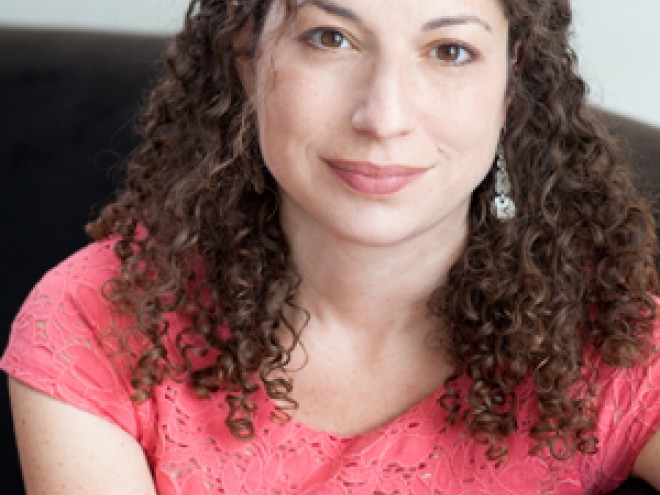
A world expert on African Jewish communities, Nathan Devir is assistant professor of Jewish Studies and director of the Middle East Center at the University of Utah. His acclaimed first book, New Children of Israel: Emerging Jewish Communities in an Era of Globalization, describes groups who are claiming — or reclaiming — their Jewish identity in the developing world. Devir’s readable scholarship takes readers on a fascinating journey of discovery to Jewish communities across Africa and the Indian subcontinent.
Adam Rovner: Your book focuses on “emerging Jewish communities.” Can you explain what that means?
Nathan Devir: “Emerging” is an imperfect term, sometimes used alongside qualifiers such as “Judaizing” or “neo-Jewish.” These words indicate that a community is not part of a conventionally-recognized sector of klal yisrael, the worldwide Jewish people. Because Jews are such good record keepers, and because correspondence between divergent communities about matters of halacha has been part and parcel of post-exilic Jewish life, we have a pretty good idea about where Jews have settled. But it’s the communities that fall outside of that rubric — whether they claim to be part of the Ten Lost Tribes or of other “vanished” communities, or whether they’ve only recently adopted the Jewish faith — that are frequently labeled as “emerging.” I don’t intend any denigration whatsoever of these communities’ histories or validity by the use of such terms. I only employ them to demarcate the lines between communities that are conventionally accepted and known about, and those that are not.
AR: In what ways are the “Judaizing” communities in your book different from mainstream Jewish communities in the diaspora?
ND: It depends. Many communities claim that they’ve been missing from the fold since 722 BCE, when the Ten Lost Tribes were supposedly scattered. These groups have a Jewish worldview that is pre-rabbinic, and often based on a literalist interpretation of the Hebrew Scriptures. So, in addition to the standard customs that Jews the world over follow, such as circumcision, food and hygiene taboos, and Saturday Sabbath, they often practice things that are considered bizarre to modern Jews: polygamy, animal sacrifice, Levirate marriage, or libation-pouring. Almost without exception, they no longer have any knowledge of Hebrew. They’re often closer to Samaritans or to Karaites than they are to any normative Jewish denomination. The trend seems to be that when they become aware of how rabbinic Judaism works, they wish to follow that stream since it’s the norm for the Jewish world now. Interestingly, there’s no casual “ethnocultural” or secular identification with one’s Jewish roots among such communities. They want to follow the Law to the letter, and they can’t understand how Jews in Israel or the West could ever lead secular lifestyles and still call themselves Jewish.
AR: What attracted you to the phenomenon of self-identified Jewish groups in the developing world?
ND: As early as the 1990s, when I was living in Israel, I was fascinated by the stories of my Ethiopian friends who had recently arrived there. I got to know a lot about them, but I never thought I’d use any of that knowledge in my professional life. Then, before I finished my PhD, I discovered the work of Tudor Parfitt, who was the first Western academic to seriously investigate the heritage narratives and claims of Judaizing groups in Africa. His groundbreaking work on history, religion, and culture captured my imagination and inspired me to follow his lead.
AR: As a scholar originally of Jewish literature, why did you move from the study of texts to the study of culture?
ND: As much as I love literature, I needed more on-the-ground interaction with people than literary studies afforded me. Books and archives are great, but traveling to new and exciting places, and meeting new people who are eager to share their stories — that’s just so much more rewarding for me. Also, it enables me to interact with academics from other disciplines that I find fascinating — sociology, anthropology, religious studies, folklore, political science. I feel like this move created a sea change in my intellectual perspectives on a whole range of subjects, and I’m grateful to my colleagues for allowing me the flexibility.
AR: What lessons might emerging Jewish communities hold for established Jewish communities in the diaspora?
ND: I think it’s moving to see what so many of these people are ready to give up in order to lead Jewish lives. For those of us who live in developed and relatively stable countries, we can live as Jews without having to draw much unwanted attention to ourselves, or without having to sacrifice major components of our livelihoods — the occasional anti-Semitic instance notwithstanding. But for someone who lives in a developing country where eking out a living is a constant struggle, being willing to give up a day’s wages because one won’t work on a Saturday represents a sacrifice that most of us are no longer faced with. Not to mention, of course, the danger of self-identifying as Jewish in locales where Islamist terror cells are present, or where European-derived anti-Semitic blood libels are rife. So, I think the commitment among emerging communities to preserving their identity can galvanize those of us in established countries to reflect on what kind of privileges we’ve been afforded.
AR: How might Jewish communities in North America support the “new children of Israel” your book describes?
ND: There are several key ways. First, I would recommend getting to know about the activities of the organization called Kulanu, which supports isolated and emerging Jewish communities around the world. Kulanu has many educational and volunteer opportunities that can be meaningful for those who wish to support these “new children of Israel.” Second, I would suggest that synagogues, Jewish community centers, Hillel groups, and other Jewish venues consider hosting someone from an emerging community, whether as a speaker, as a scholar-in-residence, or just as a guest. Such face-to-face encounters challenge pre-existing perspectives and create lifelong connections that can be transformative. Anyone who wishes to do this should let me know — I’d be more than happy to make the shidduch!
AR: Are you willing to hazard a prediction about how mainstream Jewry in the diaspora will receive emerging Jewish communities a generation from now?
ND: Yes, most definitely. I think that in countries such as the U.S. and Canada, where the vast majority of Jews hold principles of inclusion and progressive values dear, there will be continued efforts to engage members of emerging Jewish communities. Many Jews in North America are frustrated that they seem to be excluded from certain liberal agendas because of the perception on the left that one cannot be a Zionist and a progressive at the same time. And so, engaging with underrepresented populations with an eye toward bolstering Jewish diversity, doing work that highlights social justice and economic advancement, and broadening one’s intellectual and cultural knowledge at the same time — these are things that many Jews in the diaspora want as part of their projects of tikkun olam.
AR: And what about in Israel?
ND: With regard to Israel, I think it could go one of two ways. There are many in Israel who are in favor of engaging such groups — indeed, even of encouraging them to settle there — whether that stems from a wish to help Israel maintain its Jewish demographics and character, or whether it’s related to messianic expectations about the “ingathering of the exiles.” On the other hand, there are many who fear an influx of economically disadvantaged people whose Jewishness is in question. Such opponents will therefore take measures to keep out even those who have legitimately converted. But whether or not Israel decides to embrace this trend is ultimately a moot point in my view. Because there are millions of people from the developing world who are claiming, or reclaiming, their Jewish roots (quite likely many more than the estimated 15 million or so conventionally-accepted Jews), what Israel does or doesn’t do will not make much difference. A generation from now there will be so much interaction because of globalization, international migration, and racial diversity, that this notion of “emerging” might even be passé. It will simply be the new face of global Jewry.



